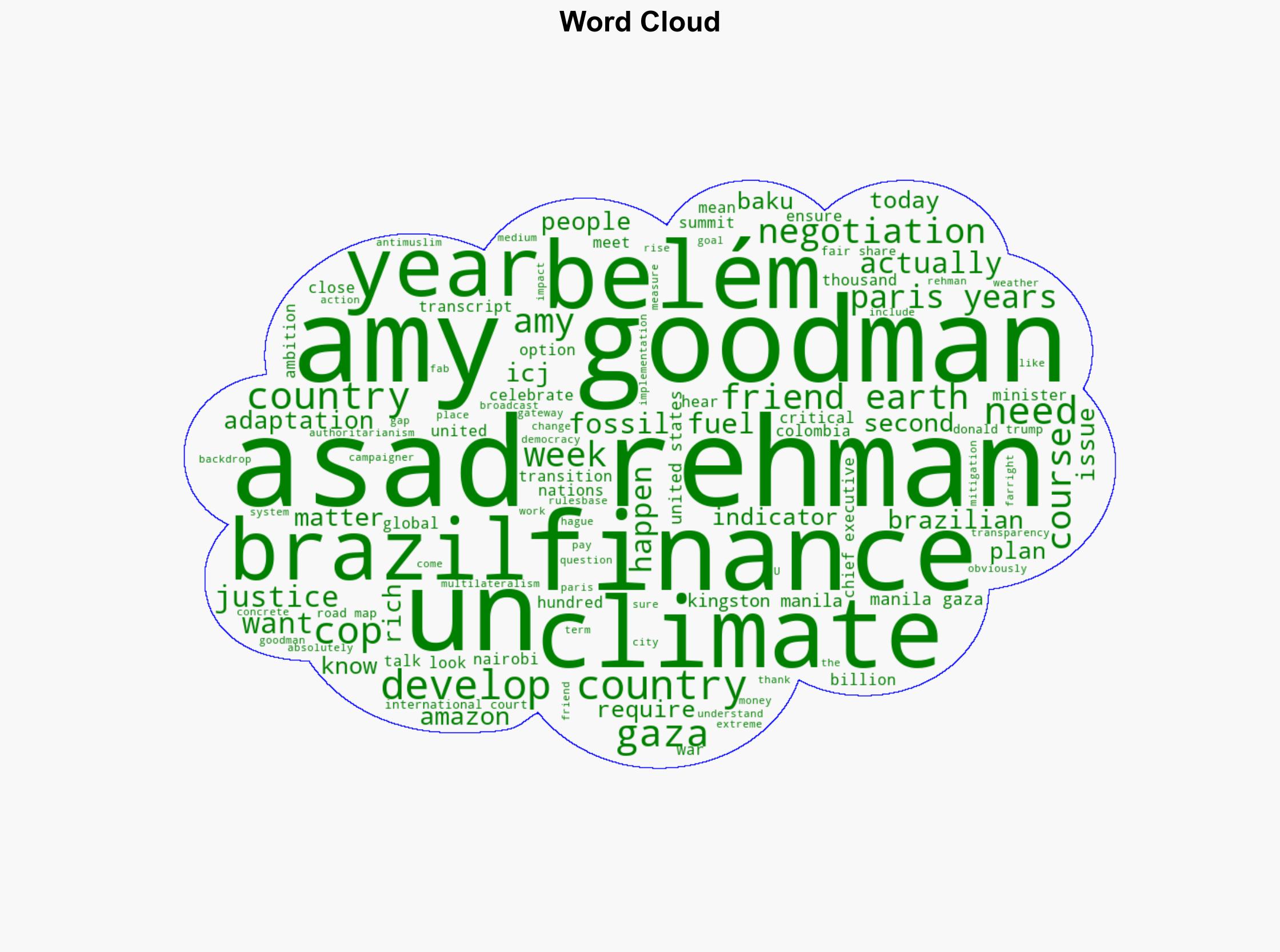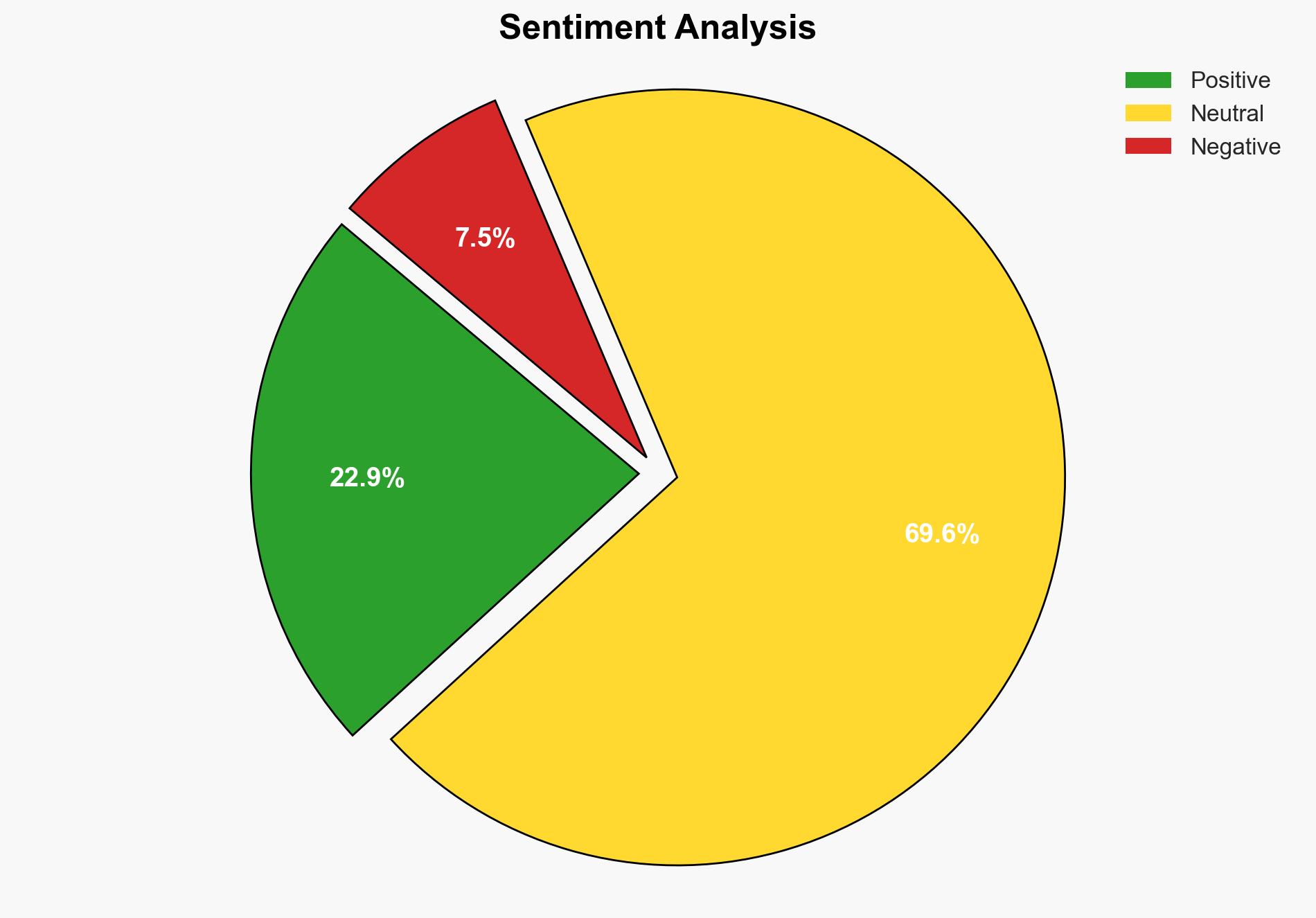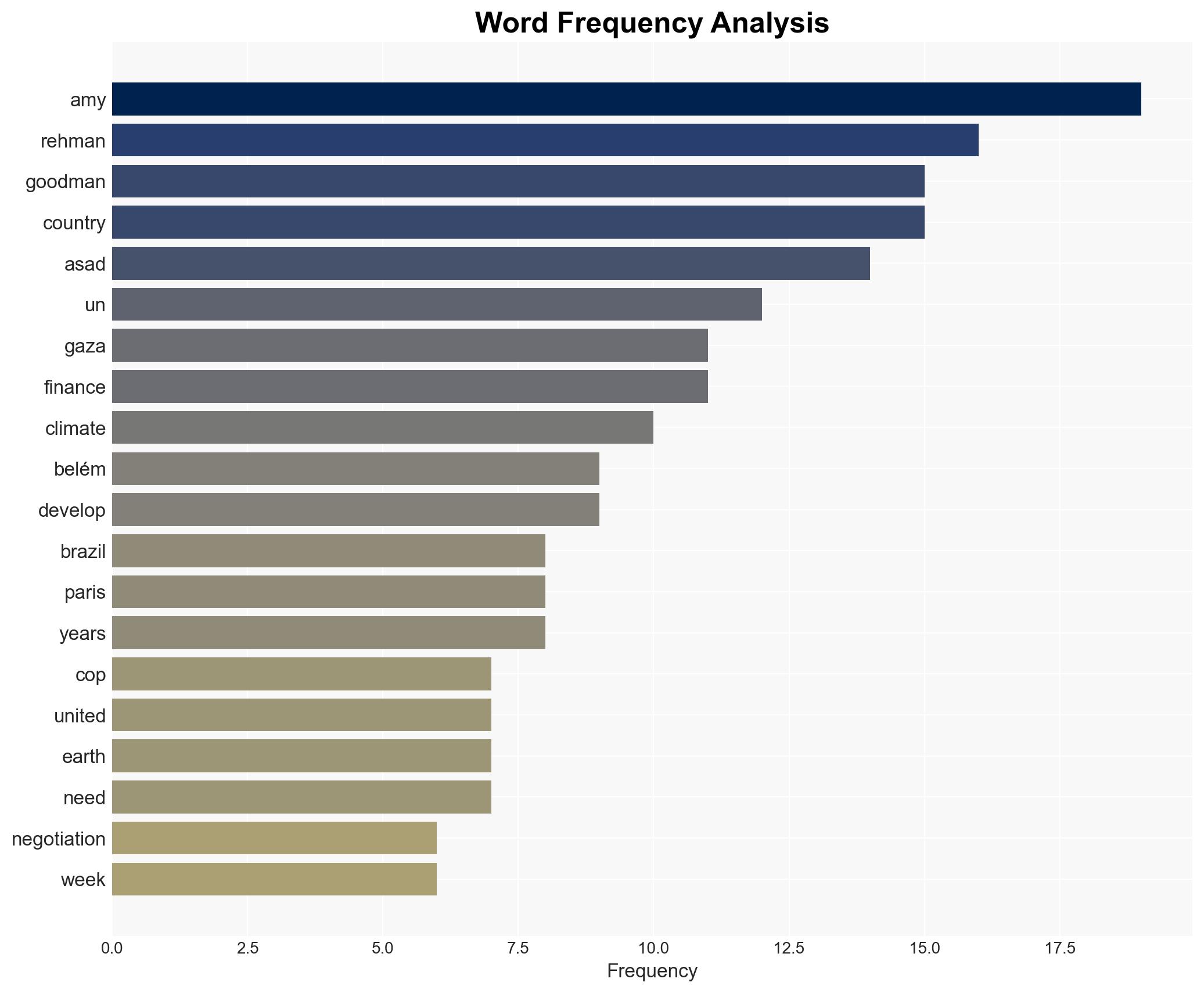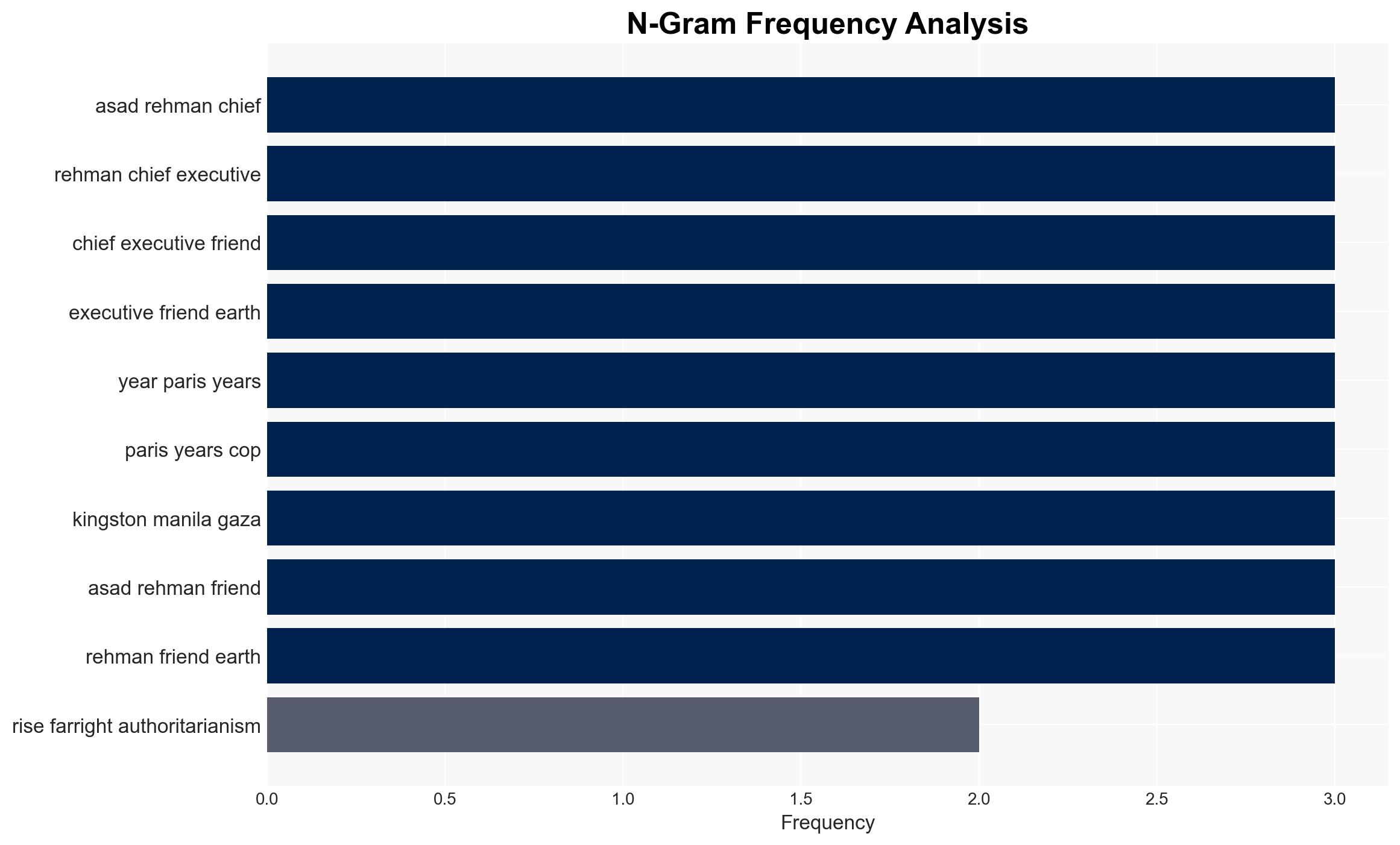Just Transition Polluting Countries Must Take Responsibility for Extreme Climate Change – Democracy Now!
Published on: 2025-11-17
AI-powered OSINT brief from verified open sources. Automated NLP signal extraction with human verification. See our Methodology and Why WorldWideWatchers.
Intelligence Report:
1. BLUF (Bottom Line Up Front)
The most supported hypothesis is that the current geopolitical and economic landscape, characterized by rising far-right authoritarianism and climate denial, is significantly hindering multilateral climate action. This is compounded by insufficient financial commitments from developed nations, leading to a lack of progress in climate negotiations. Confidence Level: Moderate. Recommended Action: Strengthen diplomatic efforts to hold developed nations accountable for financial commitments and enhance transparency in climate finance reporting.
2. Competing Hypotheses
Hypothesis 1: Rising far-right authoritarianism and climate denial are the primary obstacles to effective climate action and financial commitments at international climate conferences.
Hypothesis 2: The lack of progress in climate negotiations is primarily due to systemic issues within the UN framework and insufficient mechanisms for accountability and enforcement, rather than external political factors.
Hypothesis 1 is more likely due to the explicit mention of far-right authoritarianism and climate denial as significant backdrops to the negotiations, suggesting these factors are directly impacting the ability to reach consensus and commit resources.
3. Key Assumptions and Red Flags
Assumptions: It is assumed that financial commitments are the primary mechanism for achieving climate goals and that developed nations have the capacity to fulfill these commitments. It is also assumed that political ideologies significantly influence international negotiations.
Red Flags: The potential for double-counting in climate finance reporting and the lack of transparency are significant concerns. Additionally, the rise of authoritarian regimes may lead to biased reporting and manipulation of climate data.
4. Implications and Strategic Risks
The failure to secure adequate climate finance and address climate denial could lead to exacerbated global warming impacts, disproportionately affecting vulnerable regions. This may result in increased migration pressures, geopolitical instability, and economic disruptions. The lack of transparency and accountability mechanisms could further erode trust in international institutions, undermining future cooperative efforts.
5. Recommendations and Outlook
- Enhance diplomatic pressure on developed nations to fulfill financial commitments and improve transparency in climate finance reporting.
- Develop robust accountability mechanisms within the UN framework to ensure compliance with climate agreements.
- Best-case scenario: Developed nations increase financial contributions and transparency, leading to significant progress in climate mitigation and adaptation efforts.
- Worst-case scenario: Continued political obstruction and insufficient finance lead to a failure in meeting climate goals, resulting in severe environmental and socio-economic consequences.
- Most-likely scenario: Incremental progress is made, but significant gaps in finance and accountability remain, slowing the pace of climate action.
6. Key Individuals and Entities
Asad Rehman, Chief Executive of Friends of the Earth; Amy Goodman, Democracy Now!; International Court of Justice (ICJ); United Nations Climate Framework.
7. Thematic Tags
National Security Threats, Climate Change, International Relations, Geopolitical Risks, Economic Disruption
Structured Analytic Techniques Applied
- Cognitive Bias Stress Test: Expose and correct potential biases in assessments through red-teaming and structured challenge.
- Bayesian Scenario Modeling: Use probabilistic forecasting for conflict trajectories or escalation likelihood.
- Network Influence Mapping: Map relationships between state and non-state actors for impact estimation.
Explore more:
National Security Threats Briefs ·
Daily Summary ·
Support us
·





